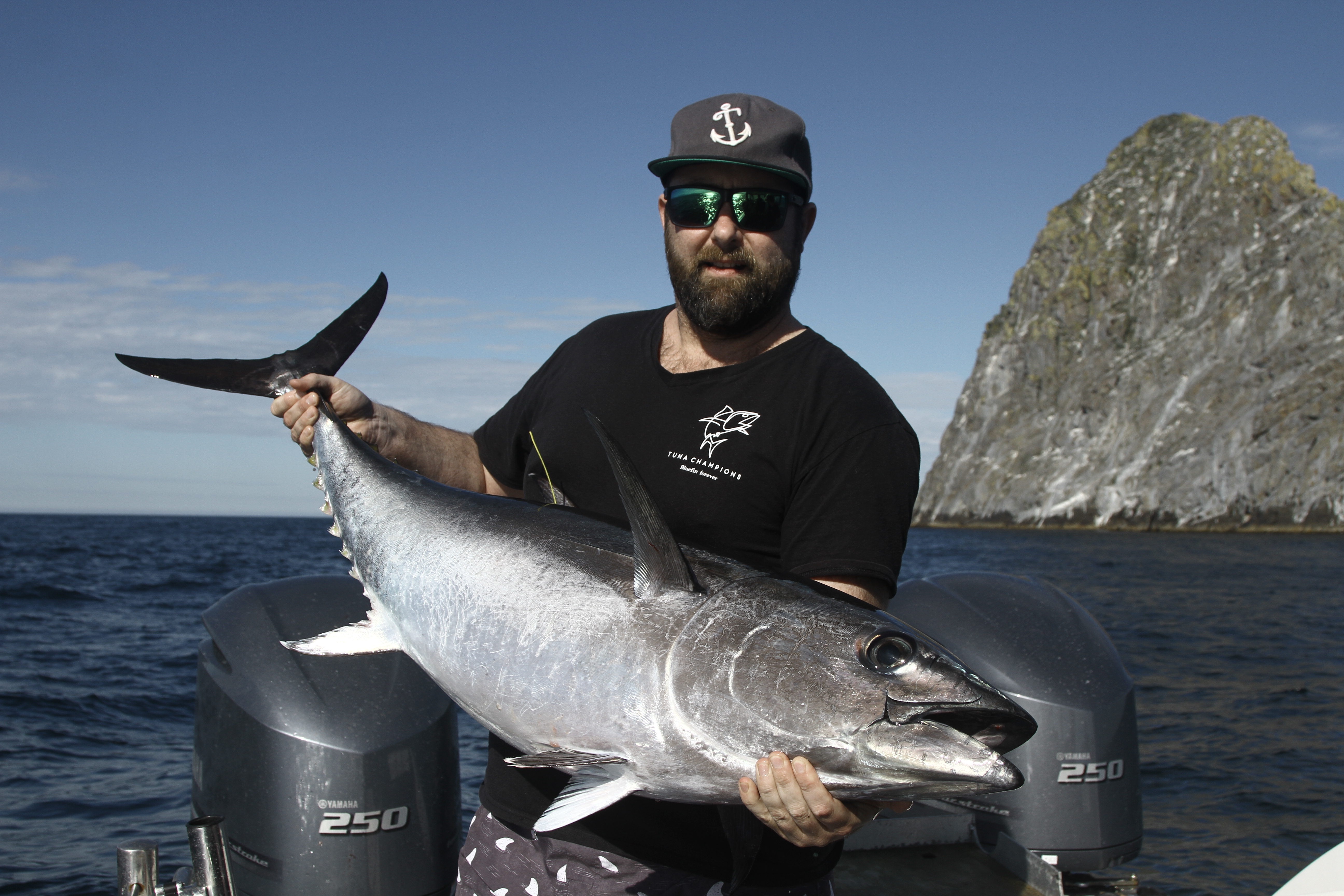The second chapter of the trailblazing Tuna Champions initiative has wrapped up, paving the way for recreational fishers with a clear guide to best-practice fishing across all Australian tuna species.
By Katie Fisher
Australia’s Tuna Champions initiative has grown into a world-leading, science-based stewardship program, helping recreational fishers adopt best practices for the catching and handling of the many different species of tuna caught in local waters.
Launched in 2017 with funding from FRDC and the Department of Agriculture, Fisheries and Forestry (DAFF), the Tuna Champions project is led by Professor Sean Tracey, Head of Fisheries and Aquaculture at Tasmania’s Institute for Marine and Antarctic Studies.

It began with a focus on Southern Bluefin Tuna (SBT) (Thunnus maccoyii), an iconic species that recreational fishers in southern Australia were encountering more regularly as the international stock of SBT began to rebuild from record low numbers in the 1990s.
SBT handling practices were developed and a marketing campaign brought the program to life, creating a website, digital media channels, Tuna Champion ambassadors, and education events across fishing communities.
The success of the initiative led to further funding for Tuna Champions v2.0, extending the program to 2024 and expanding its scope to include other tuna species popular with recreational fishers, particularly Yellowfin Tuna (Thunnus albacares).
The broad distribution of Yellowfin Tuna allowed Tuna Champions to engage with fishers further along both the east and west coasts, and into northern Australia.
“It opened up the program to a far greater number of fishers,” explains Sean.
Template for better fishing behaviour
“The Tuna Champions template is all about clear, practical advice that helps fishers rethink how they catch and handle tuna,” explains Sean.
On the catching side, that means using heavier line classes, using single instead of treble hooks and ensuring there’s plenty of ice to make a slurry once the fish is packed into an esky or chiller bag.
When it comes to handling, it’s all about reducing harm: using a knotless landing net, large Boga lip grips and making sure anything that touches the fish, whether it’s a glove, net, or bare hands, is wet to help protect the fish’s natural slime layer.
“We’ve seen more people adopting these practices, in more locations,” says Sean. “In a remarkably short time, we’ve managed to embed real behavioural change across the recreational tuna fishing sector.”
Recognising leaders
An annual Tuna Champions Award has recognised leadership by individual fishers who can show they have changed their fish handling and who actively share messages about best practice.
In 2024, the title went to Charlie Hodgens, a standout young angler from South Australia, known for his commitment to respectful, responsible tuna handling and sharing of stewardship messages.
The leadership award for recreational fishing businesses is in the form of Golden Charter Operator certification. It recognises businesses that take the lead in educating their clients on proper tuna handling.
The inaugural Golden Charter operator was Richie Abela, from Dream Catcher Sportfishing II in Victoria. “If your clients pay to catch a 100kg tuna, they will want to handle it right to get their money’s worth and enjoy quality meat,” says Richie.
Expanding local and global stewardship
Looking ahead, Sean is proud that shifting the behaviour of even a small part of the recreational fishing sector has created meaningful impact.
Two major fishing bodies have embraced the Tuna Champions model to launch their own best-practice campaigns. In Victoria, the peak body VR Fish has introduced “Care for Cod,” while Fisheries Tasmania launched “Flathead for the Future.”
“The success of this initiative has also crossed international waters, with recognition from the United States, South Africa, New Zealand and Europe. And honestly, that’s just the beginning,” says Sean.
Related FRDC Project
2021-086: Tuna Champions v2.0: Bluefin and beyond
2017-123: The role of the recreational fisher in the stewardship of the Southern Bluefin Tuna fishery





